Have you ever faced the disappointment of a rejected application? It can be both frustrating and disheartening, but it's important to remember that many successful individuals faced similar setbacks on their journeys. Crafting a compelling appeal letter can be your ticket to re-evaluating your case and showcasing your true potential. If you're curious about how to effectively structure your appeal and increase your chances of success, keep reading for valuable tips and a handy template!

Clear subject line
A rejected application can significantly impact future opportunities, particularly in professional or academic settings. A clear subject line, such as "Appeal for Application Rejection - [Your Name/ID]" serves to quickly summarize the purpose of your communication. The content of the letter should include a polite introduction thanking the review committee for their time and consideration of the application. Elaborating on specific points from the rejection notice allows for a constructive discussion, highlighting qualifications or experiences that may have been overlooked. Expressing a willingness to provide additional information or clarification demonstrates engagement and respect for the committee's decision-making process. A concise conclusion restates interest in the position or program and offers gratitude for reconsideration.
Applicant information
The applicant's information section typically includes essential details that establish the identity of the individual submitting the appeal. This includes the applicant's full name, which is crucial for the identification process, contact information such as phone number and email address for correspondence, and the application reference number, which links the appeal to the specific application being contested. Additionally, the date of submission helps track the timeline of the appeal and ensures that it is processed within any established deadlines. Further details might include the applicant's address to provide context regarding jurisdiction and residence, which could be relevant in certain application types, such as residency permits or educational enrollments.
Reason for initial rejection
A rejected application can often stem from various reasons that may include insufficient documentation, lack of eligibility, or failure to meet required deadlines. For instance, a student visa application might be rejected due to missing bank statement evidence, which confirms financial stability for living expenses in the United States. Alternatively, an employment application could be denied based on a lack of relevant work experience, especially if the position requires five years in a specialized field such as cybersecurity. It's essential to review the specific rejection letter details carefully, as they outline the exact reasons for the denial, enabling the applicant to address these concerns directly in an appeal.
Justification for reconsideration
A rejected application for a scholarship can significantly impact a student's educational journey. When appealing this decision, it is critical to present a compelling justification, incorporating relevant details. Highlight specific achievements, such as a GPA of 3.8 or participation in community service projects that reflect commitment to social impact. Acknowledge any misunderstandings in the application, perhaps clarifying unique circumstances like a personal hardship that affected academic performance. Emphasize future goals aligned with the scholarship's purpose, such as pursuing a degree in Environmental Science at a prestigious institution. Illustrate how the financial support can make a difference in accessing higher education, ultimately contributing positively to the community.
Call to action and gratitude
An appeal for a rejected application can be effectively crafted by expressing appreciation and urging reconsideration, while highlighting key reasons for potential acceptance. Acknowledgment of the organization's efforts, such as the selection committee's time reviewing applications, helps establish rapport. Articulation of specific qualifications, experiences, or contributions related to the undertaking can enhance the appeal's impact. Highlighting a commitment to improvement and growth, along with a respectful request for re-evaluation, is essential in fostering a positive dialogue. Ultimately, conveying enthusiasm for the opportunity and willingness to provide further information can strengthen the case for reconsideration.

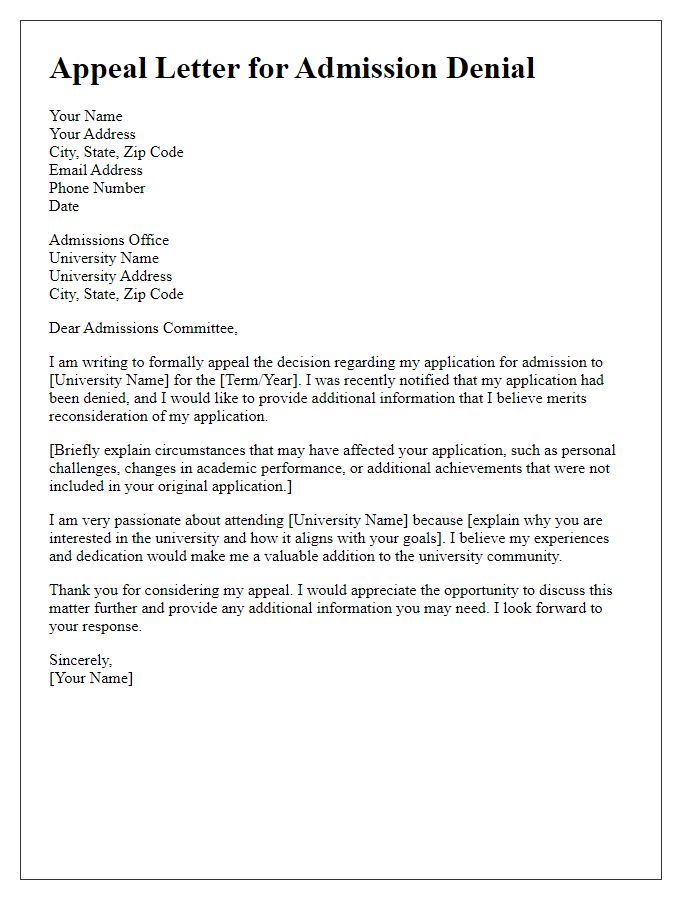
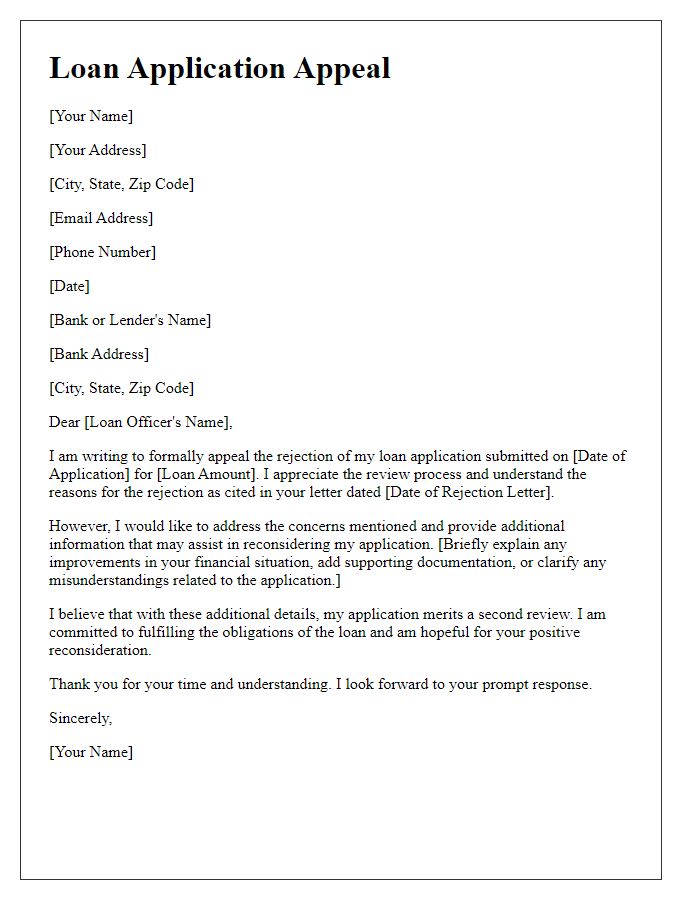
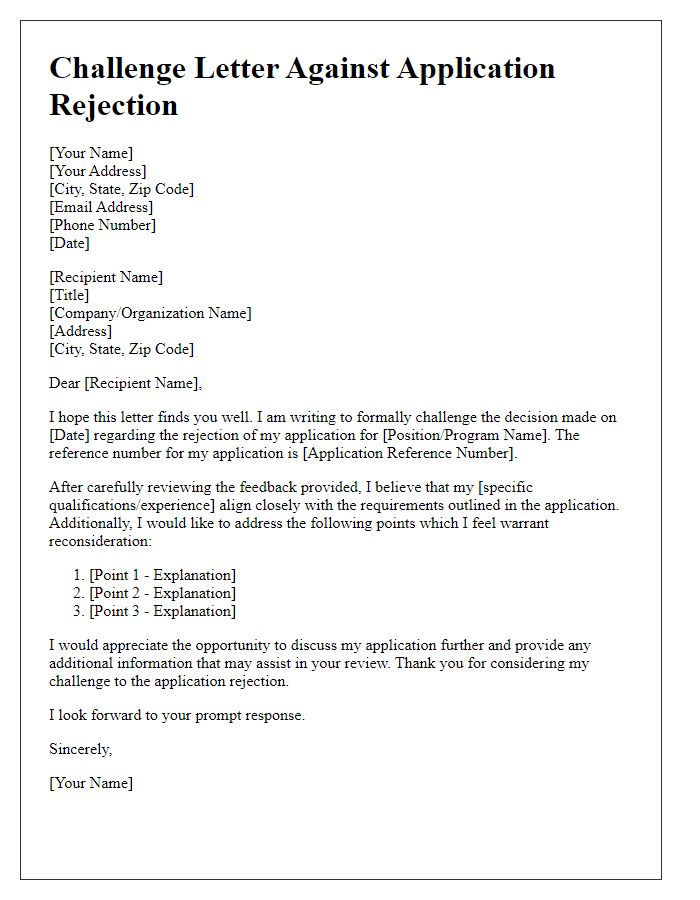
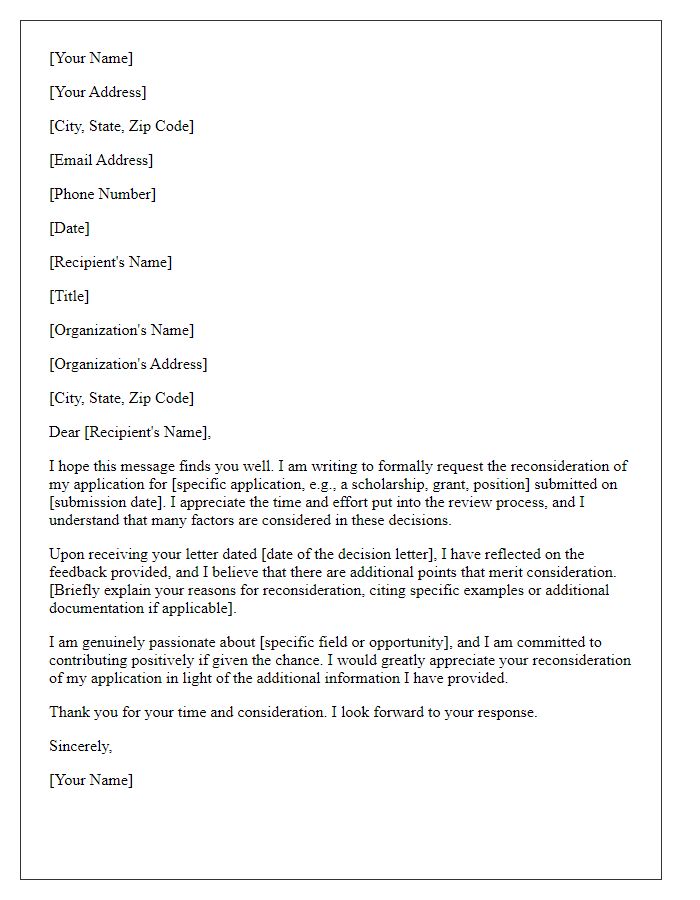
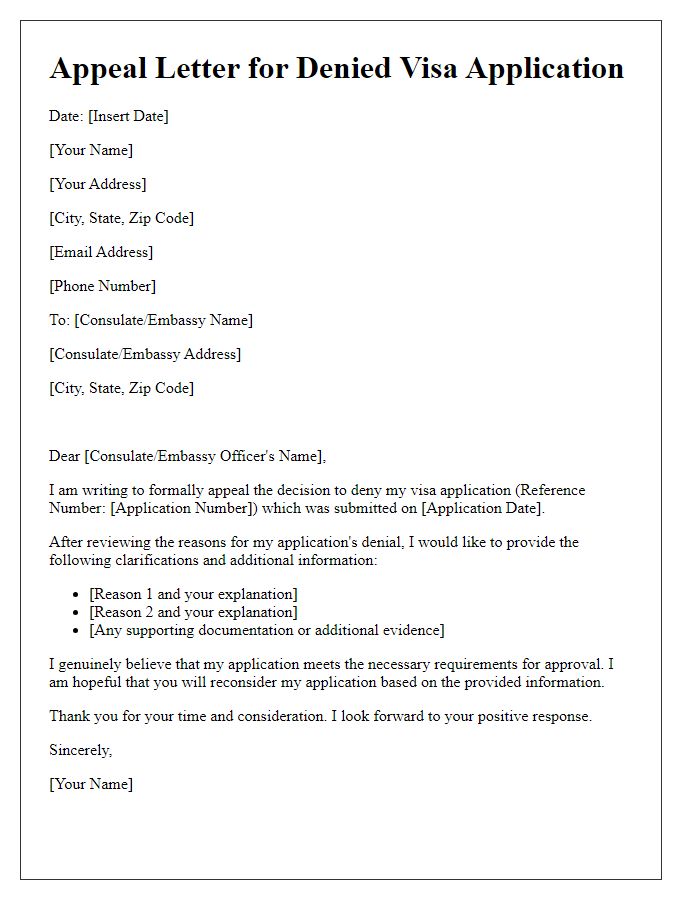
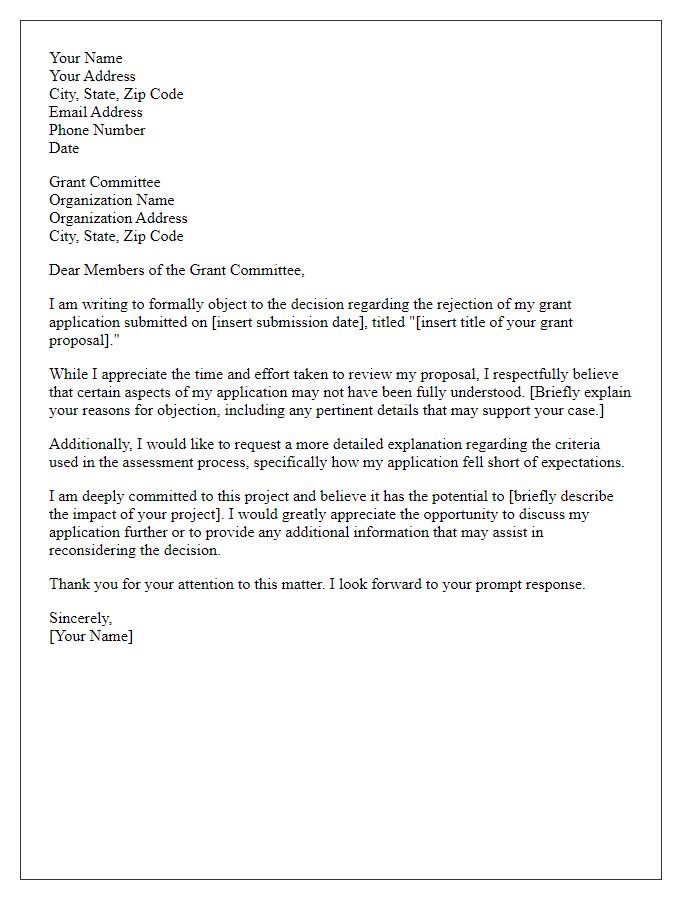
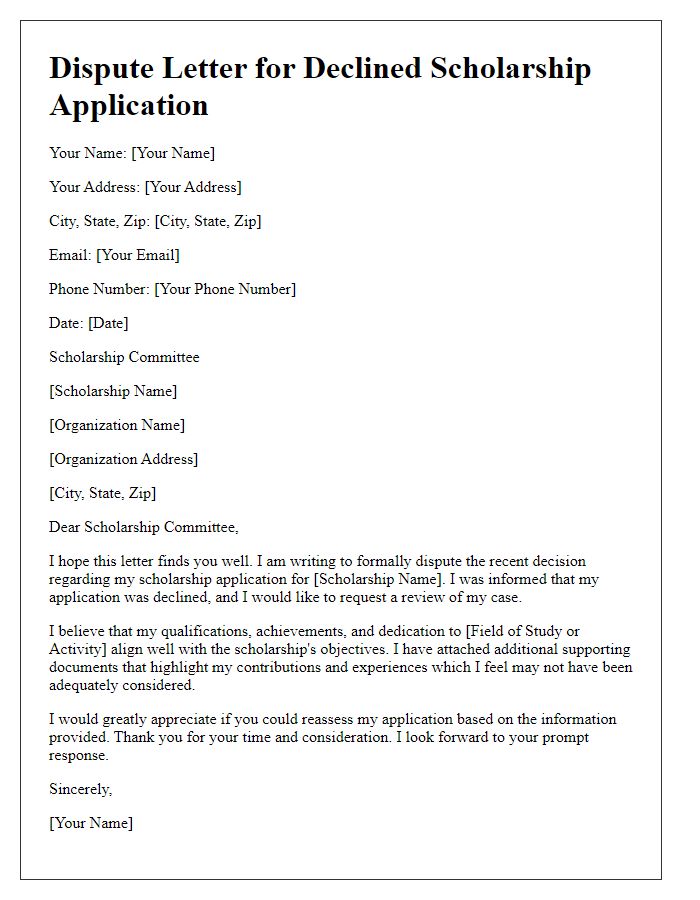
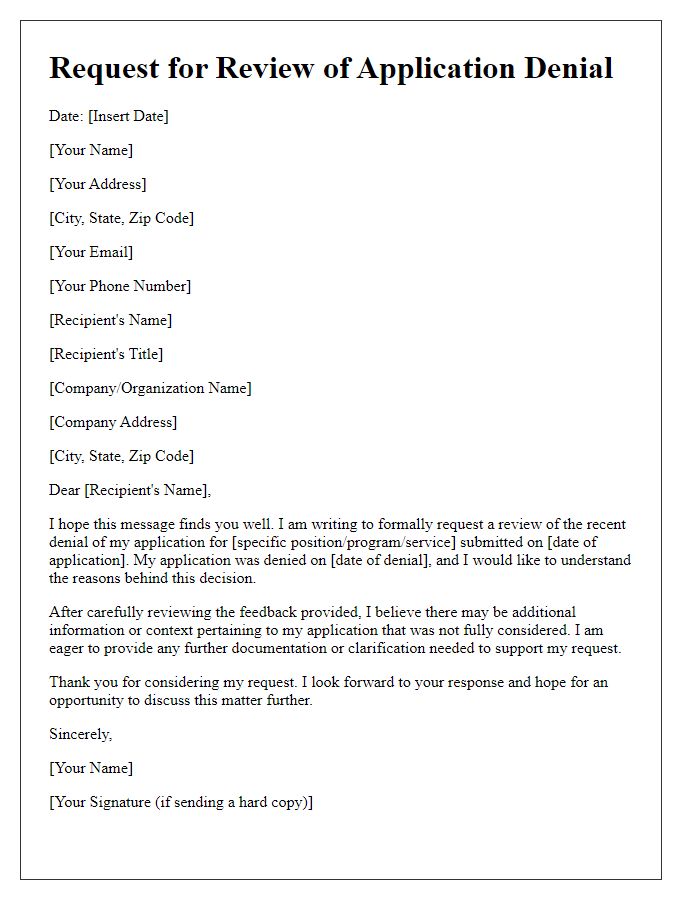
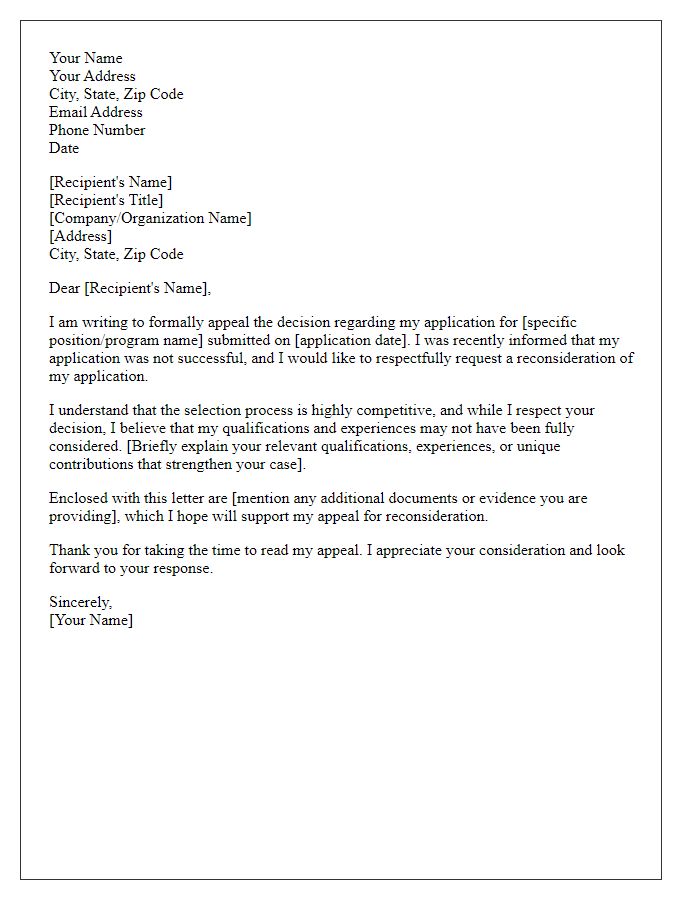
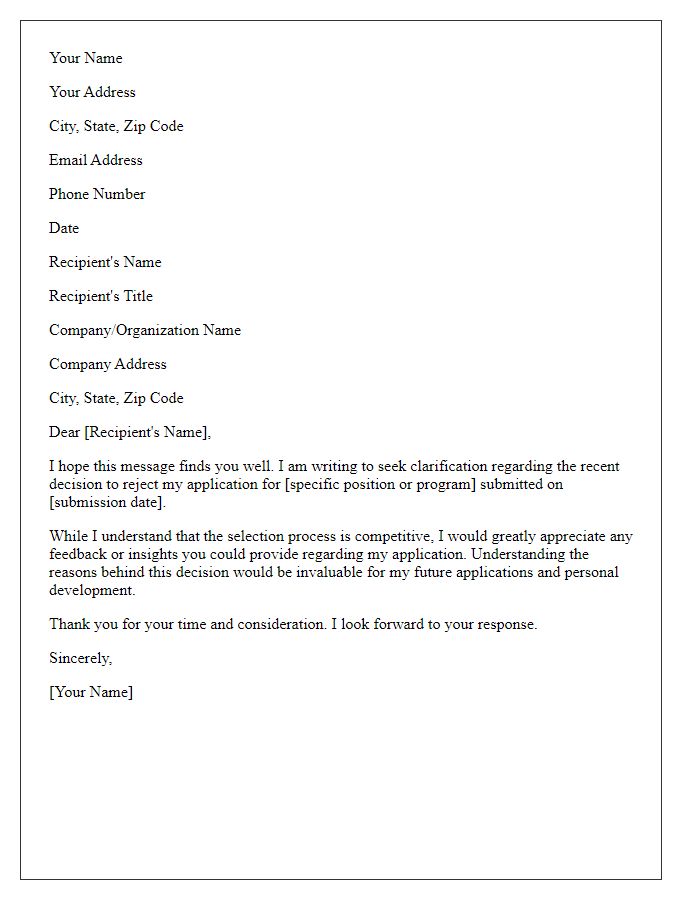


Comments